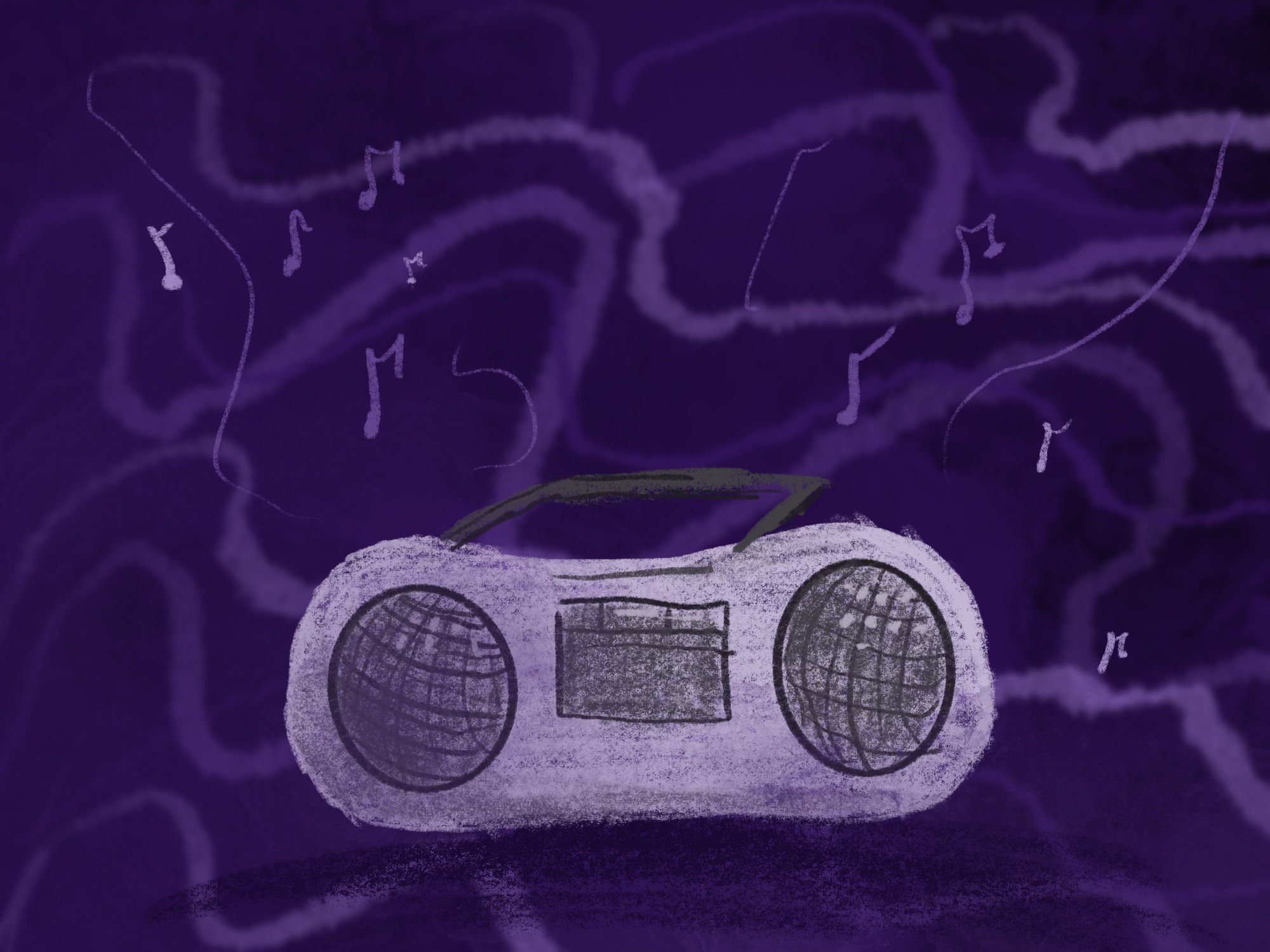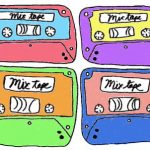I was completely obsessed with Justin Timberlake’s music as a kid. There’s no exaggeration about it, I can admit that his old material still has a soft spot in my heart.

You know the shelf of random, eclectic CDs that sit in front of the entrance of a thrift store? My mother bought one, specifically a compilation of 2000s R&B hits. She played the compilation in the car — a compilation so fitting in the humid, summer afternoons of downtown Kansas City. My younger brother and I were sitting in the backseat just enjoying the cruise.
I loosely recall the tracklist transitioning from Shaggy’s “It Wasn’t Me” to Justin Timberlake’s “What Goes Around… /…Comes Around (Interlude),” which was a personal game-changer for me. Timberlake’s grasp on melody and Timbaland’s bombastic production make for a perfect duo — the ambitious, seven-minute heartbreak epic solidifying my love for the genre.
My interest grew further, jumping straight into the so-called “alternative R&B” canon. Listening to Frank Ocean’s explorative and breezy “Channel Orange,” Sampha’s meditative and prophetic “Process” and James Blake’s drifting post-dubstep self-titled album, remain to be some of my favorite records ever. The luscious, airy and moodier production drew me in, sounds that blew me away when I first listened to it.
The term “alternative R&B” came with its criticisms via other artists pigeonholed by the label. Originally dubbed as “PBR&B” by music critic Eric Harvey as a joke, the sound being written off as hipster-friendly comes off as insensitive and reductive.
To me, R&B has always pushed boundaries outside of its original conventions. This evolution is evident more now than ever: more left-field, genre-melding experimentation is being pushed by current musicians to create an almost genreless experience. Simply put, the music has always been more than just “alternative R&B.”
One of my favorite artists right now is Kansas City-based musician Benjamin Lyman, also known as 1010benja, who is a uniquely adventurous artist that I discovered at the right time. His evolution is fascinating — going from playing in a punk band in Tulsa, Oklahoma called True White Brother to busking outside of New York. 1010benja’s established history in multiple music scenes and his wide array of musical influences make him more than an up-and-coming act, rather, he is made for the spotlight.
1010benja’s maximalist approach is stunning — the cohesive stringing of programmed sounds and synthetic textures complement his astonishing, passionate voice that truly separates him from his contemporaries. With a discography of only two EPs and a debut album released this year, his material is moving and undoubtedly amorphous.
What is also moving through a pop-adjacent context is the project of Baltimore-bred singer-songwriter and producer Marcus Brown’s Nourished by Time. Originally starting off playing guitar all because Brown popped one of his father’s strings and eventually studying at Berklee College of Music, he is giving it his all into his current project. The results from Brown’s music are rewarding soundbites with an intriguing flair that has me listening to his music on repeat.
“Erotic Probiotic 2” is such an exciting, eclectic breakout album for Brown, which is both surprising and impressive knowing it was recorded in his parent’s basement. Filled with sticky melodies, baritone vocal inflections mixed with flashes of 80s R&B and new wave through a bedroom pop filter, Brown curates a captivating, groove-filled world. The reach of Brown’s project extends further with his dizzying and ethereal “Catching Chickens” EP, his XL Recordings debut released this year.
In the more unconventional and esoteric side of R&B, London singer-songwriter Tirzah’s avant-garde conception is equally sparse and mystifying. English composer and close friend, Mica Levi, has frequently collaborated with Tirzah in morphing her distinctly alien and minimalistic sound.
Tirzah’s discography of studio albums released on Domino Records differ in style, but all are similarly riveting. The introspective, stripped-back sounds of her debut album “Devotion,” the mesmerizing atmosphere, off-kilter structure of “Colourgrade,” and the almost claustrophobic and repetitious trap drum loops of “trip9love…???” are all interesting in their own right.
Her ability to create such a strange, otherworldly variant of pop music haunts me. Calling Tirzah an experimentalist is an understatement, rather, she’s an artist who treads in exploring hallucinatory environments all the way to favoring simplicity in her music is undeniably admirable.
Surrealist, mangled soundscapes are truly on full display when you’re discussing each artist’s own respective sound. Currently one of the more accessible artists, in my opinion, carving his own beat is New Jersey artist and multi-instrumentalist Mk.gee. A frequent collaborator of Maryland-raised singer-songwriter Dijon, his debut album “Two Star & the Dream Police” sees him channeling this ultrasonic collection of songs that are both scrappy and stunning.
Michael Gordon’s dream-like guitar playing and raspy, feral vocal inflections have an ephemeral quality if you look past the slightly clangorous and unpolished production. I would say the production enhances Gordon’s songs — the clashing and rattling percussion working in his favor with glitzy pastiches from ‘80s pop and funk. For a debut album, “Two Star & the Dream Police” feels fully realized.
It’s an awe-inspiring feeling to know there are musicians who challenge the status-quo of “genre” and ignore the thought of it completely. I feel those who are conscious of genre and insist on putting a label on a piece of music are limiting themselves in thought of the artist’s intentions and influences. Defining vastly different sounds under one category as “alternative R&B” reads as a smug side-eye, rather than a compliment.
I always revisit How to Dress Well’s hauntological “Total Loss,” The Weeknd’s era-defining trilogy of mixtapes and even my mother’s favorite R&B hits. All thematically similar but sounding different from one another, there is no need in categorizing various lives of music under one label.
The need for an “alternative” is unnecessary. It just naturally evolves.


